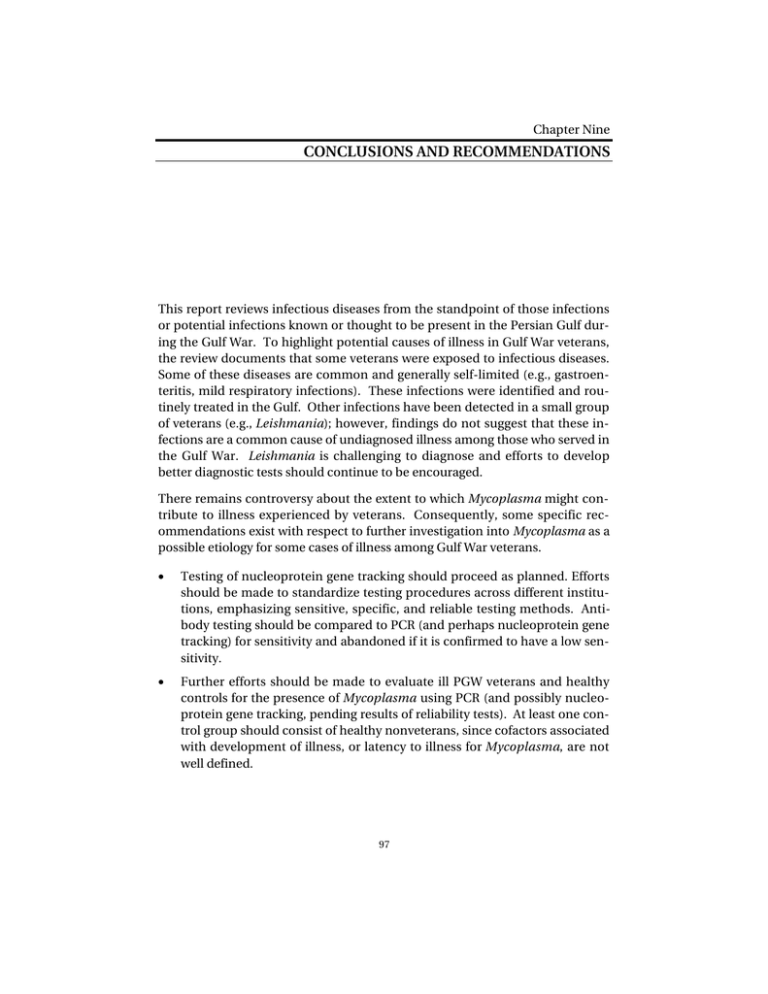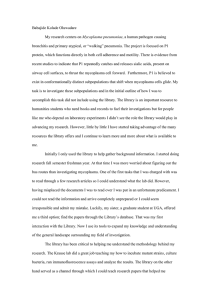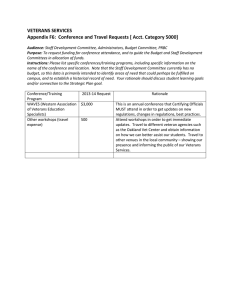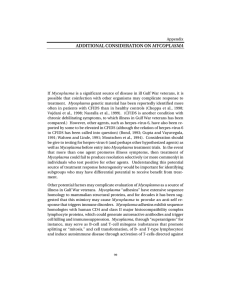CONCLUSIONS AND RECOMMENDATIONS
advertisement

Chapter Nine CONCLUSIONS AND RECOMMENDATIONS This report reviews infectious diseases from the standpoint of those infections or potential infections known or thought to be present in the Persian Gulf during the Gulf War. To highlight potential causes of illness in Gulf War veterans, the review documents that some veterans were exposed to infectious diseases. Some of these diseases are common and generally self-limited (e.g., gastroenteritis, mild respiratory infections). These infections were identified and routinely treated in the Gulf. Other infections have been detected in a small group of veterans (e.g., Leishmania); however, findings do not suggest that these infections are a common cause of undiagnosed illness among those who served in the Gulf War. Leishmania is challenging to diagnose and efforts to develop better diagnostic tests should continue to be encouraged. There remains controversy about the extent to which Mycoplasma might contribute to illness experienced by veterans. Consequently, some specific recommendations exist with respect to further investigation into Mycoplasma as a possible etiology for some cases of illness among Gulf War veterans. • Testing of nucleoprotein gene tracking should proceed as planned. Efforts should be made to standardize testing procedures across different institutions, emphasizing sensitive, specific, and reliable testing methods. Antibody testing should be compared to PCR (and perhaps nucleoprotein gene tracking) for sensitivity and abandoned if it is confirmed to have a low sensitivity. • Further efforts should be made to evaluate ill PGW veterans and healthy controls for the presence of Mycoplasma using PCR (and possibly nucleoprotein gene tracking, pending results of reliability tests). At least one control group should consist of healthy nonveterans, since cofactors associated with development of illness, or latency to illness for Mycoplasma, are not well defined. 97 98 Infectious Diseases • Efforts should be made to quantitatively characterize symptom frequencies in ill Gulf War veterans who test positive for Mycoplasma fermentans (using PCR) and in those who test negative. • Tests of treatment with antibiotics should be performed upon ill Gulf War veterans in whom PCR testing for Mycoplasma is positive, even though mycoplasma has not been confirmed as an etiology. There are few treatments available where existing evidence suggests benefit; therefore, it is particularly important that promising treatments be given careful consideration and controlled testing.1 • Thus, a randomized controlled double blind treatment trial of antibiotics, of adequate duration, would be useful in ill Gulf War veterans, following testing for Mycoplasma (with PCR) and for herpes-virus 6. Outcome measures should include symptoms, quality of life, and post-treatment Mycoplasma test results. At least one powered subset should consist of veterans who test positive for Mycoplasma and negative for herpes-virus 6. Even if Mycoplasma per se is not confirmed to be a source of illness, there is merit to such a treatment trial in the face of reports of marked benefit with antibiotic therapy. ______________ 1Since this writing, such a study is now under way with many of the characteristics advised here.



